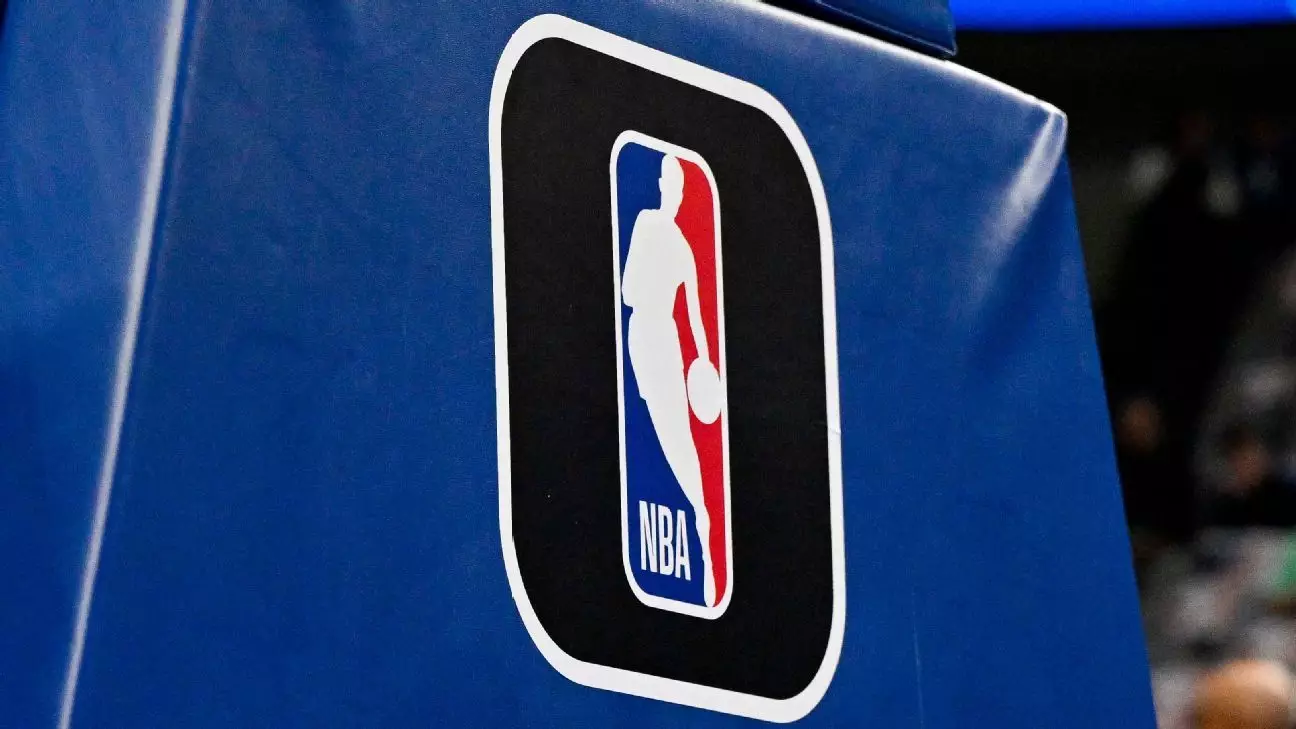The NBA has announced a revolutionary shift in the structure of its All-Star Game for 2025, introducing a dynamic four-team tournament format. This innovative approach seeks to inject excitement and intensity into an event that, in recent years, has struggled with attracting competitive spirit. By incorporating elements reminiscent of pickup games, the league aims to enhance player engagement and fan entertainment while maintaining the individuality of this prestigious showcase.
The essence of the 2025 All-Star Game is simplicity yet sophistication. In this unprecedented setup, two semifinal matches will each compete to reach 40 points, leading to a final showdown that will conclude once a team scores 25 points. This single-elimination format promises to put a premium on every possession, dramatically escalating the stakes and ensuring that team dynamics and strategy are front and center. The structure fundamentally shifts away from the traditional lengthy 48-minute contest and replaces it with quick, high-stakes matchups, reminiscent of how basketball is often played at local parks.
In a field of four teams, sourced from the best talent in the league, each team will feature eight players. Moreover, the addition of the Rising Stars game’s winner showcases a commitment to elevating emerging talent alongside established stars. Pairing seasoned stars with rising athletes not only creates an exciting competitive atmosphere but also offers a platform for newer players to shine on a grand stage.
The NBA’s shift towards this new format stems from ongoing discussions with a coalition of team executives, players, and officials aiming to revitalize the All-Star experience. Input from prominent figures in the league, such as Golden State Warriors’ Stephen Curry and WNBA star Sabrina Ionescu, indicates that players themselves see value in changing the way these showcases operate. This increased involvement from athletes ensures that the format resonates with those who participate, which could lead to more competitive play.
Furthermore, fan engagement is paramount. By fostering a more interactive environment, the NBA hopes to cultivate an electrifying atmosphere that draws in viewers both in-arena and at home. The transition away from high-scoring, less competitive games symbolizes a desire to provide a narrative of rivalry and urgency that fans crave. The collective feedback from the past seasons, including the record-breaking 211-186 game in February, has proven instrumental in shaping this strategic pivot.
NBA Commissioner Adam Silver’s acknowledgment that the quality of competition had diminished significantly speaks volumes about the league’s self-awareness and commitment to improvement. The discussions surrounding the 2025 All-Star Game reflect an industry-wide recognition that the format was in need of a refresh, leading to an earnest pursuit of solutions that prioritize both competition and entertainment.
Silver’s statements emphasize the league’s intention to foster an environment that moves away from traditional game formats. His perspective encourages a shift towards invigorating concepts that challenge conventional wisdom, thus allowing for a multifaceted All-Star experience. This reflects a broader trend in sports, where leagues across disciplines seek to innovate in order to keep pace with evolving audience preferences.
As the NBA gears up for the 2025 All-Star Game at the Chase Center in San Francisco on February 16, the anticipation surrounding this new tournament-style format is palpable. By engaging players and considering their input, the league demonstrates a willingness to adapt and enhance the All-Star experience fundamentally. Whether this bold experiment will lead to a more competitive and entertaining event is yet to be seen, but the NBA’s comprehensive approach underscores a bright future for the league’s marquee exhibition. Fans, players, and officials alike will be watching closely, hoping this new structure heralds a renaissance for one of basketball’s most celebrated traditions.

